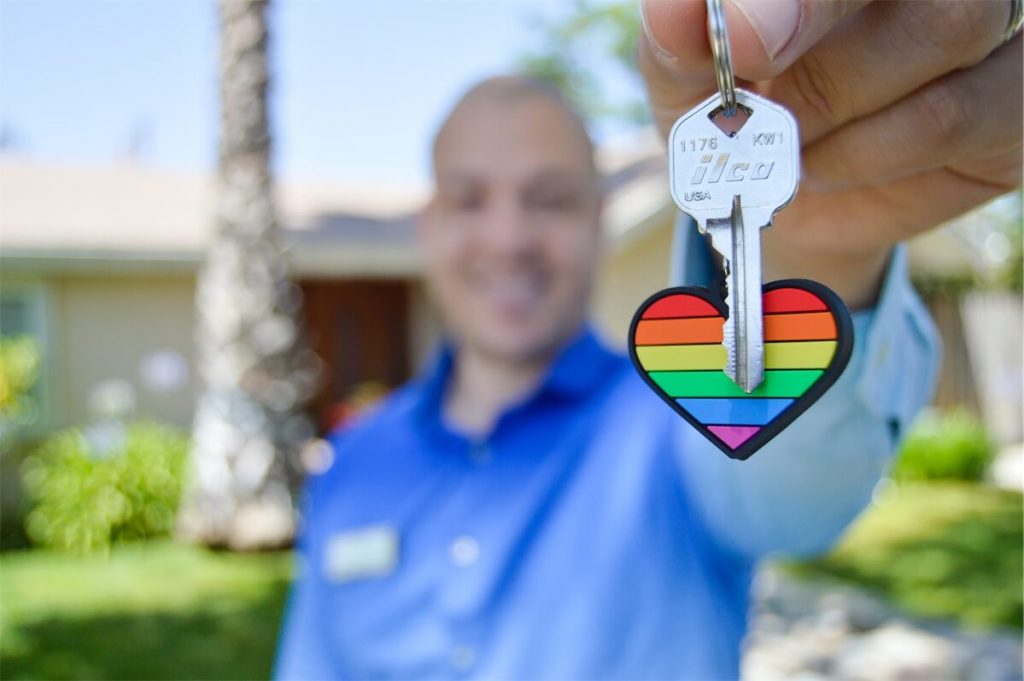If you’re a new homeowner, you might be overwhelmed by all the nitty-gritty details you’ll need to learn about getting your HDB flat. Besides choosing the right home, researching its location and close by amenities, you’ll also need to be aware of insurance policies to keep your home covered.
There are many private insurance plans in the market. But before you read into those, you’ll first need to start from the basics: the HDB Home Protection Scheme.
We cover more home loan terms you need to know in our guide here.
What is the Home Protection Scheme (HPS)?
In a nutshell, the HPS is an insurance protection scheme that ensures that you or your family maintain ownership of your house in the event of unfortunate circumstances.
HPS is a mortgage reducing scheme that prevents homeowners from losing their HDB flat due to death, terminal illness, and permanent disability. In case you pass away while still owing a sum on your home loan, the balance will be paid in full by HPS, and your partner or family would not have to worry about losing the flat or take over the mortgage repayments.
The HPS covers homeowners up to the age of 65 years, or until the loan is paid — whichever is earlier.
Who is eligible for the Home Protection Scheme (HPS)?
As HPS is a public home insurance policy, only HDB homeowners get to apply for this plan.
Those who own private housing won’t be able to opt for this public home insurance scheme, including Executive Condo (EC) and privatised HUDC homeowners. If you do own a private property, you can instead buy private mortgage insurance.
How can you apply for the Home Protection Scheme (HPS)?
You’ll be able to apply for the Home Protection Scheme as long as you’re an HDB homeowner.
Your mode of payment wouldn’t affect your eligibility. In fact, it’s pretty easy to apply for the Home Protection Scheme as the application is available through various channels — you may apply for the scheme at the HDB Hub, any HDB branch, or online.
Is the Home Protection Scheme (HPS) compulsory?

HPS is compulsory for any HDB owner using CPF to pay for their monthly home loan instalment
As an HDB homeowner, your share of the HPS cover should at least match the proportion of the monthly housing instalment payable with your CPF and/or cash. This is because HPS pays off the outstanding housing loan, up to the sum assured, based on the percentage share of cover of the insured in the event of death, terminal illness or total permanent disability.
For instance, if you’re paying 80% of the monthly housing instalment and your co-owner pays the remaining 20%, you should be insured for 80% of the loan. The total share of cover per household should add up to at least 100%.
You may also choose to insure for a higher or lower share based on your needs and circumstances. For example, both you and your co-owner can opt to be insured for 100% of the outstanding loan amount. This means that in the event something untoward happens to one of you, the CPF Board would settle 100% of the outstanding housing loan.
We suggest covering 100% for each homeowner to ensure that you are protected. Contact us to find out more about how you can optimise your home loan and coverage.
Exemptions under special circumstances
However, there are a few circumstances where you’re not required to apply for HPS.
1. You’re not using your CPF savings to pay for your HDB flat
If you didn’t pay for your HDB flat with your CPF funds, you can opt-out of HPS. Not using your CPF shows that you’re financially healthy and capable of repaying your home loan, giving you the option and freedom to opt-in or opt-out of HPS.
Even so, it would help if you still considered applying for HPS, or other mortgage or HDB housing loan insurance to cover your needs in case of serious mishaps.
2. You’re already sufficiently covered through your own insurance plans
You can be exempted from HPS if you have an insurance policy to replace it. This could be any one of the following policies:
- Whole life insurance
- Term life insurance
- Endowment plan
- Life riders (attached to a basic policy)
- Mortgage Reducing Term Assurance (MRTA) / Decreasing Term Rider
Your policy or rider must cover you from death, terminal illness and total and permanent disability for any unpaid sums on your home loan up to the full term of the loan or until you hit the age of 65, whichever is earlier.
Before you conclude that you’re sufficiently covered, make sure you check that your insurance policies are applicable first. Not all insurance plans will allow you to be exempted from HPS, and you don’t want to jump to conclusions too quickly.
Do note that you’ll have to apply online via the CPF website to get exempted from HPS.
3. You’re not automatically enrolled into the HPS
While the HPS is greatly encouraged, that doesn’t mean you’re automatically enrolled if you meet all the requirements.
As with most insurance plans, you’ll first need to make a health declaration before your application can be approved. This means that there’s a chance your application could be denied. In those circumstances, you’ll need to look for private mortgage insurance for coverage.
Here are some reasons why your HPS could be denied, or why you might not be able to claim under HPS:
| Specific exemptions under which HPS is denied | Specific exemptions under which HPS claims will be rejected |
|---|---|
| You are not in good health before the commencement of the HPS policy | You attempted/committed self-inflicted injury or suicide |
| You provided false or misleading information | You committed a criminal offence punishable by death |
| The claim arose out of your own intentional criminal act |
How much is the Home Protection Scheme (HPS)? How is it calculated?

There are a few factors that affect the amount you need to pay for your HPS.
- Outstanding home loan amount
- Remaining loan repayment period
- Age and gender
- Type of loan (HDB loan or bank loan)
In general, those with a higher outstanding loan amount or a shorter repayment period will need to pay higher fees for their HPS.
Another factor that could influence the amount you pay for the scheme is age and gender. The older you are, the higher your premium. Females and those who are younger tend to get lower premiums.
Since there are many factors affecting your scheme’s payment, it’s advisable to check online with the HDB Home Protection Scheme calculator to get a rough estimate of your HPS premiums.
It’s also important to note that those who qualify for HPS only need to pay 90% of the scheme’s period. This means that if your scheme’s coverage period is 30 years, you’ll only be required to pay premiums for 27 years.
Here’s how the figures would look like:
Suppose you take out a $500,000 loan from HDB for your flat, and the tenure period is 30 years.
You’ll only need to pay for the first 27 years, while you get to be covered for the maximum period of 30 years.
Let’s say the premium costs about $600 a year — that means you’ll only need to set aside $50 a month to get full coverage under the scheme.
Home Insurance: Getting the right coverage
Getting the right coverage you need for your home is important, especially in unexpected situations.
The Home Protection Scheme is designed to be affordable for Singaporeans and PRs, ensuring that you can still afford to live in your home even if your ability to work has been affected.
Unless you’re confident that your mortgage insurance plans or insurance policies are sufficient, you should consider signing up for the Home Protection Scheme even if you meet the requirements to opt-out of it.
Read: How to optimise your home loan refinance in a low-home interest rate environment.
Find out how the surplus of HDB MOP flats will affect the resale market here.

At FinanceGuru, we seek to help homeowners find the best home loan and help them achieve their financial goals. Learn more about how you can optimise your home loan and uncover potential ways to save you money and time. Get a non-obligatory assessment and loan product recommendations today.







